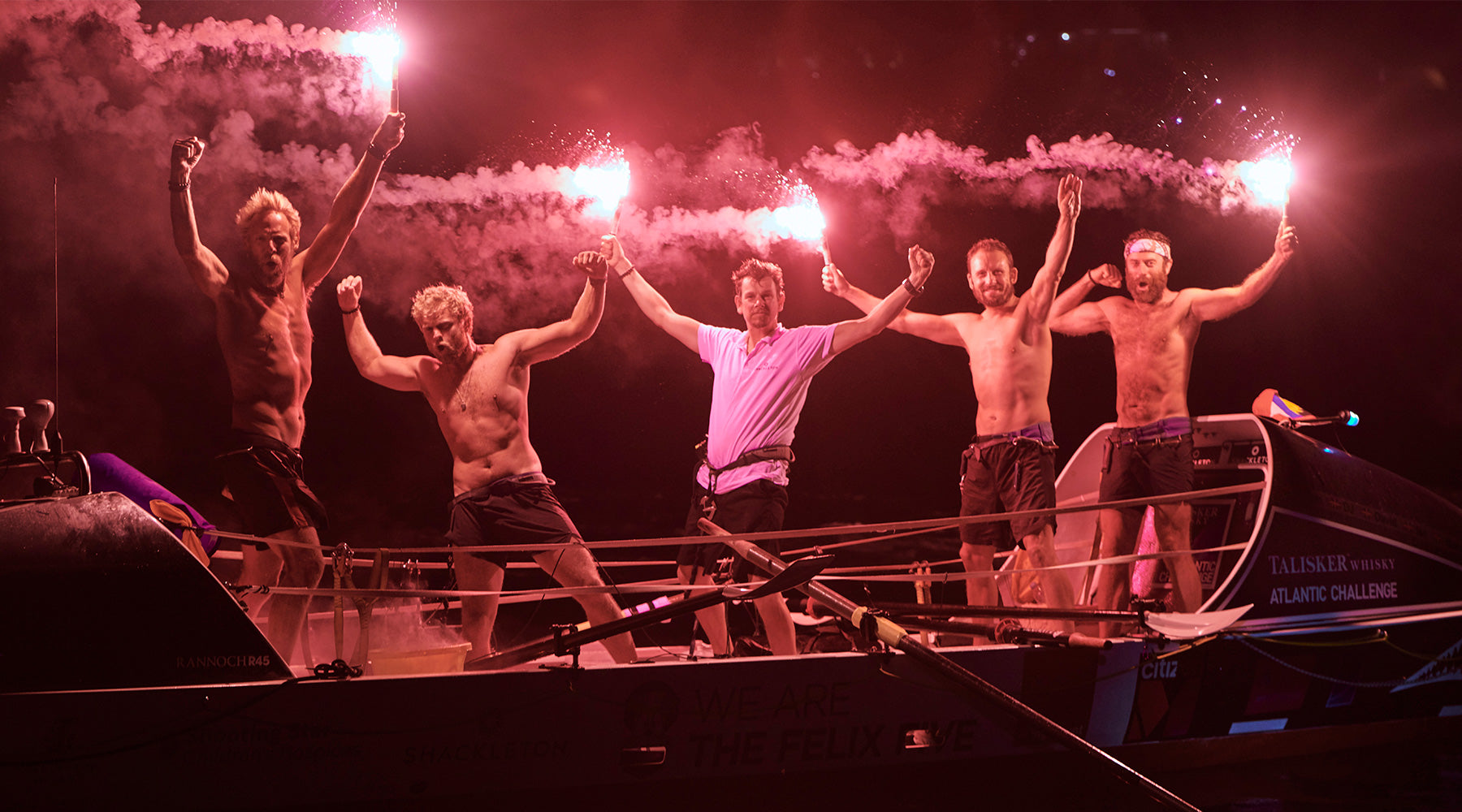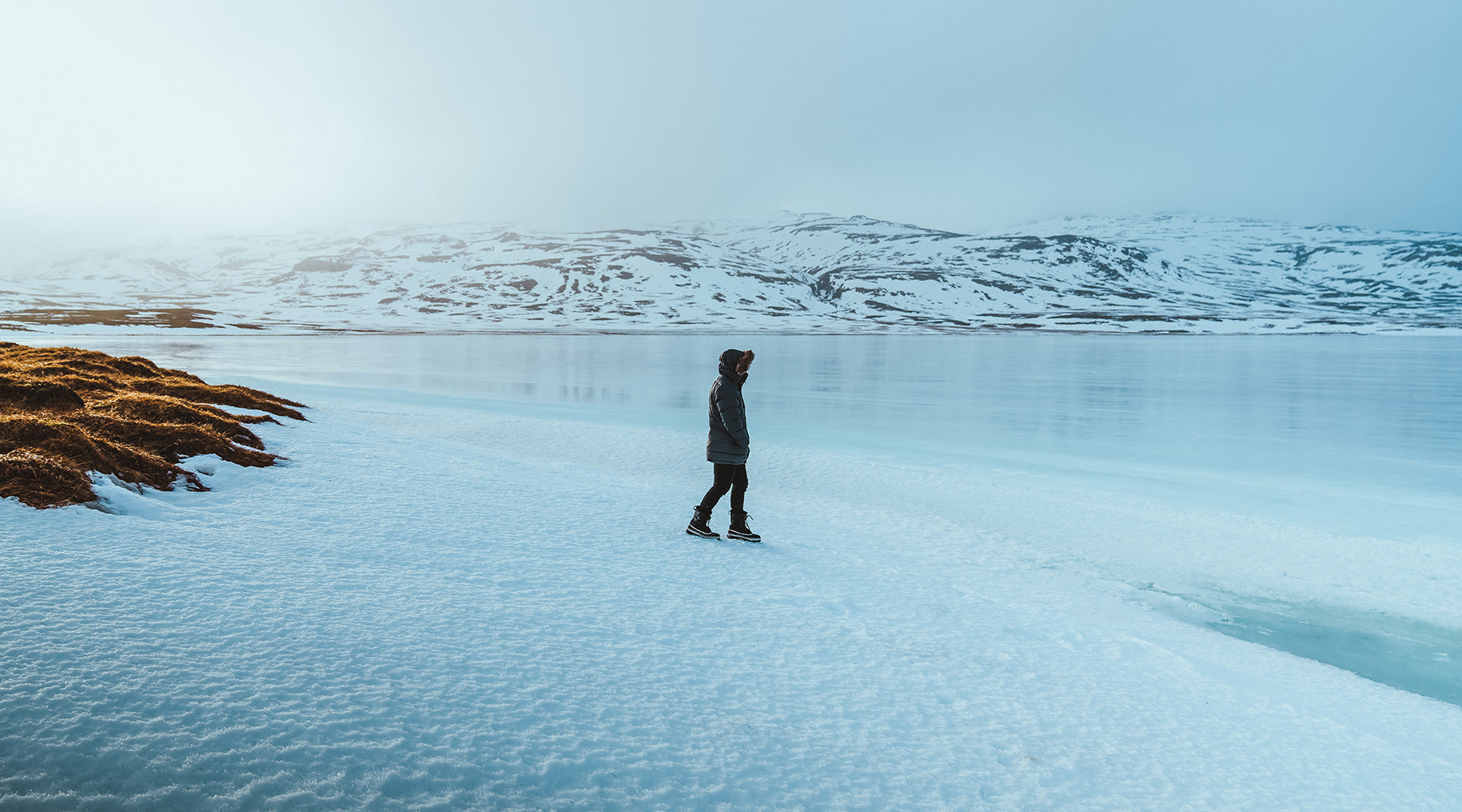
Founder’s Note: Choose Your Attitude
Shackleton co-founder Ian Holdcroft completed his trans-Atlantic row at the end of January after 42 days at sea with the Felix Five crew. Having had time to reflect on the defining experience, he shares how his mental preparation for the voyage is helping him manage the current situation, and hopes it may inspire you too.
Before I left the UK to row across the Atlantic Ocean, I thought long and hard about what I wanted to get out of the experience. People asked me how I felt – was I nervous, excited, worried, scared? In truth I felt everything and nothing. I focused not on how I felt but what I did; I focused on what I could control and tried not to worry about the things I couldn't.
I trained hard, planned logistics, had a nutrition plan, prepared the boat, bought kit, considered 'what if' scenarios, prepared my children to be without their dad for two months and thought about what I wanted to get out of the experience. It would be an experience I had never had before; a challenge so enormous and a journey so long that it could be overwhelming.
We discussed as a team what our collective goal should be: were we aiming to be the first boat across the Atlantic, break a world record, or did we just want to get across and survive the journey? Although we, as individuals and as a team, are ambitious, determined and competitive, we ultimately decided we were going to focus on getting across the ocean safely and operate as efficiently as possible as a team to complete the crossing in the shortest time possible.
On a personal level, I wanted to be the very best version of myself – my attitude, my behaviour and my actions. The impact I would have on the team was going to define my experience. So I wrote down seven personal commitments on the inside of the boat. This was who I was going to be from the first oar stroke to the last.
1. Be calm
Do not compromise decision making when under pressure. Do not panic when fearful and let fear influence how you think. Think clearly at all times. Communicate calmly when under pressure.
2. Be positive
I can choose my attitude. I can frame any experience however I like. I will focus on being positive at all times. Regardless of the moment, regardless of what is happening around me, regardless of how I feel, I will endeavour to have a positive mindset at all times.
3. Be present
The past has gone, the future is irrelevant, what counts is the now. Don’t dwell on things that have gone before, don't have regrets. Don’t worry about the future or the next moment. Don't think about the finish line or wish away the experience, however challenging it becomes. Stay present, stay in the moment and appreciate every single second. My life is this oar stroke, this precise moment.
4. Respect
Team, environment, me – in that order. Maintain respect for the team and each individual. We are all likely to experience difficulties at different times. We are all going to feel the pressure from time to time. Recognise that when operating under pressure, people's communication, behaviour and actions can be different. Understand it is temporary and help them through it.
5. This is a privilege
I am fortunate to have this opportunity. It’s a self-imposed challenge and I’m going to enjoy every single moment, however tough it gets. I am privileged.
6. Never, ever be late to the oars
It is my duty and my responsibility to be ready at the start of every single one of my shifts. Do not make my teammate wait. We will be rowing 24 hours per day in two-hour rowing-recovery shifts. It will be relentless. I will be expected to row regardless of my physical or mental state. Be ready.
7. It’s always the team
It’s not about me, it’s not about how I feel, it’s the team that matters. Always put the health of the team and my teammates first. If I am hungry, someone else will want food. If I am tired, someone else will need to sleep. If I am thirsty, someone else will need a drink. If I am in pain, someone else will need a painkiller.
I lived in an area the size of a small kitchen table, with no escape, for 41.5 days. At times we were under extreme pressure in a very challenging environment. We lost power on day five and never fully recovered it. We had to navigate by the sun, moon and stars for long periods of time. We had to manually steer most days. Our progress was slowed. We had to survive on approximately three hours sleep in every 24-hour cycle. We had to eat freeze-dried food hydrated with desalinated sea water. We had to go to the toilet sitting on a bucket inches away from someone else. We had to row through acute seasickness. We had to endure physical and emotional pain. And for 24 hours every day, we had to withstand the pressure of being unable to escape, living in a confined space, relying on each other to get across the ocean, knowing that if we capsized we may not survive.
We all face challenging times in our lives and what I went through when rowing across the ocean is not even remotely comparable to the current global situation, especially to those operating in critical roles, those who are ill, those who are homeless, those who live in challenging situations. What I went through was self-imposed.
What is comparable, though, is preparing oneself for the unknown. The current global health, social and economic situation is beyond anyone's individual control, and while it is an uncontrollable situation, it should not impact you negatively – it is how one thinks, behaves and acts that defines who you are and the experience you have.
For Shackleton, as with many other businesses, the future is uncharted. We do not know how long this situation will last, but what is guaranteed is our resolve and our commitment to finding a way through this challenge. As individuals, as a team and as a business, we will come back stronger than ever.


